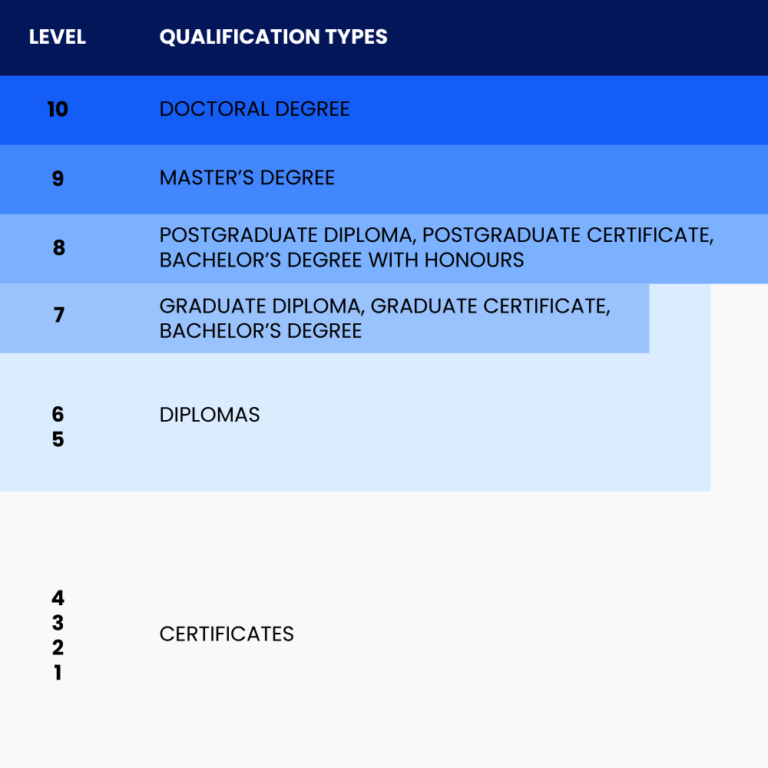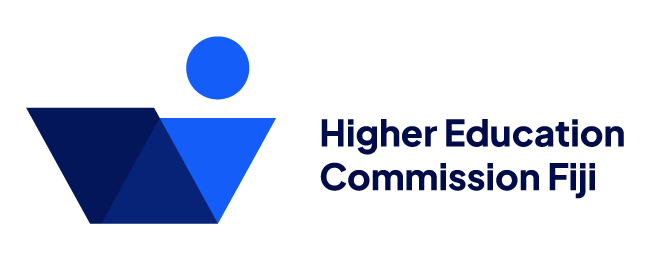Fiji National Qualifications Framework
The Fiji National Qualifications Framework (FNQF) provides a system for describing and classifying quality assured qualifications.
The framework provides for different learning pathways and promotes learner mobility, by clarifying how qualifications relate to each other within the national system.
The FNQF is an important national planning tool, providing the strategic platform for education and training that is tailored toward delivering a supply of people with the skills, knowledge and attitudes that match both current shortages and future needs across all aspects of the Fijian economy.
The FNQF has been developed in consultation with all stakeholders, including industry and international advisors. It clarifies how competencies and qualifications relate to each other at different levels, and it establishes learning pathways that will enhance learner mobility and stimulate progression and career development.
National standards have been established through policies, systems and regulations and will assure the quality of Fiji’s qualifications and ensure consistency and relevance across the formal learning environment.
The FNQF enables businesses to hire with confidence, and skills and capabilities are able to be interpreted on international employment markets.
By ensuring that opportunities are not limited in both the short and long term by skills deficits, the FNQF can be a key factor in stimulating confidence and entrepreneurial spirit across the business community. Many of Fiji’s emerging and current international businesses, will be enhanced by the international recognition of the qualifications and skills of the people involved in them.
Achieving international recognition is a primary goal for the HEC. Expansion of international employment opportunities through formal recognition of competencies and qualifications will create new horizons for learners, and new income potential for families.
Purposes of the FNQF
- Provide quality education and training through the delivery of qualifications that meet the needs of the Fijian economy.
- Encourage individuals to progress through levels of education and training by improving access to qualifications, defining avenues for achievement and stimulating lifelong learning
- Promote flexible pathways that assist individuals to move easily between education and training sectors and into the labour market
- Providing the basis for recognition of prior learning, current competence, credit transfer and work and life experiences
- Accommodate diversity of delivery purposes of education and training
- Regulate the value and characteristics of qualifications awarded in Fiji by providing standard definitions and demonstrating the linkages between them
- Assure the quality of learning and assessment leading to the award of a qualification
- Provide a national platform for the recognition of outcomes achieved
- Establish a format for regulating the issuance of national qualifications
- Ensure that the interests of learners and other stakeholders are considered
- Provide a platform for promoting national and international recognition & portability of qualifications offered in Fiji and enhancing employment opportunities

Classification System
The ten-level FNQF framework extends from certificates to doctorates, encompassing all the education and training provided within Fiji at senior levels of secondary school, industry, vocational schools and all tertiary vocational education (TVET) providers, technical training institutes, and university and specialist higher education providers.
The ‘classification system’ is defined by the levels of competency and achievement that can be expected at each of the ten levels of the framework. Each level has designated qualification types. Descriptions for each level express increasing complexity, with level one certificates being the simplest and level ten doctorates, the most complex.
Level descriptions and qualitative descriptions of qualification types are presented below.
Accredited qualifications will be placed on the FNQF according to their level of certification and the principal subject area. Subject areas on the FNQF will be described by 13 broad fields of learning with provision for further definition at sub- field level.
Quality assured standards and qualifications registered on the framework are expressed in learning outcomes that reflect knowledge skills and attitudes. The learning outcomes indicate the nature of the qualification. This enables relativities and relationships between qualifications to be defined, comparisons to be more easily made, and learning pathways to be readily identified.
Emphasis shifts from skills acquired, to knowledge acquired, at higher levels on the framework. The level to which a qualification is assigned depends on recognition of the complexity of the skills and the knowledge.
Credit awarded for achievement can be accumulated and transferred between qualifications and between levels of the framework. The credit transfer mechanism establishes flexibility and acts as a catalyst for progression and for lifelong learning.
